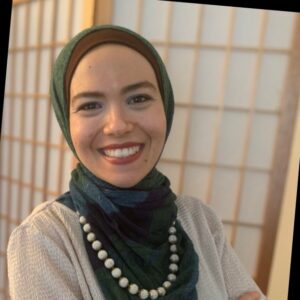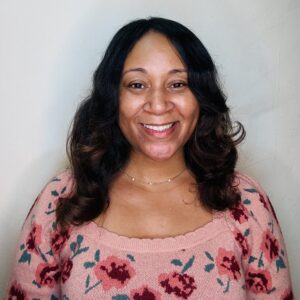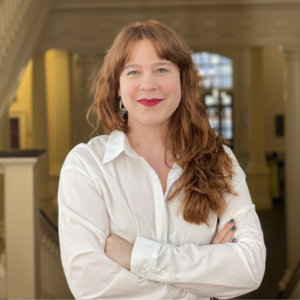As with running for elected office, the process of seeking a commission or board appointment, can be daunting. But it does not have to be. Boards and commissions are powerful entities in communities—especially those that advance community and economic development, like Planning & Zoning, Finance, Human Relations, School, Library, just to name a few. These boards and commissions can shape entrepreneurial ecosystems, economic opportunities, and even the cultural landscape of a community, and how and who is at the local level making decisions on these topics can deeply impact equity.
When it comes to advancing inclusive economic and community policies, it is important for city leaders to examine the makeup of their boards and commissions; and ask themselves if they represent the city’s population in terms of geography, gender, race, and class. The City of Webster Groves, MO is working to do just that. By joining NLC’s City Inclusive Entrepreneurship (CIE) program, Webster Groves is working to ensure that more people, especially women, can be a greater part of the city’s decision-making process.
Mayor Laura Arnold is Webster Groves’ fourth consecutive female mayor and served on a city commission before joining the city council. Despite having strong female representation in city hall, Mayor Arnold noticed that the city’s boards and commissions were predominantly male, a trend that persists nationwide, based on research from Missouri-based UnitedWE’s Appointments Project. Mayor Arnold also noticed that not everyone has an equal understanding of the powerful roles that boards and commissions in the city can play in the community; “There’s a 10-point disparity between men and women represented in Webster Groves’ boards and commissions,” reflects Mayor Arnold. “This leadership matters, and closing that gap would make a meaningful difference in this community.” To address this gap and raise awareness for the importance of these appointments, Mayor Arnold has committed Webster Groves to participating in CIE’s Leadership Diversity cohort, which partners with UnitedWE to mobilize and educate community members, especially and specifically women, on what the processes are in joining local boards and commissions. UnitedWE encourages cities within the Leadership Diversity cohort to advance this information through community partners.
How Webster Groves is Doing it
Webster Groves is partnering with both local and regional organizations to spread the word about the application processes for its boards and commissions. Through the CIE program, Webster Groves receives program expertise from UnitedWE, through which they arrange and promote a webinar (taking place on February 6) to bring attention to, and encourage residents to apply for, leadership vacancies. A key component of the webinar for cities in the Leadership Diversity cohort is the pre-work of contacting and engaging local partners to participate. Partner organizations joining the Webster Groves/UnitedWE webinar include the League of Women Voters of St. Louis, the National Women’s Political Caucus, the Alliance for Interracial Dignity, and the North Webster Neighborhood Coalition, all of whom have unique membership demographics that engage different sectors of the Webster Groves community.
The goal of these partnerships is two-fold: to increase awareness of what it means and how to works to serve on a board or commission, and to build a greater, more diverse pool of applicants who see the process as accessible and engage in it moving forward, for both the near- and longer-term. These partnerships also indicate what Mayor Arnold has called “incredible” support for the city’s participation in the CIE Program. Every partner who was asked to join has agreed.
For other cities interested in advancing gender equity on their boards and commissions, Mayor Arnold shares some key takeaways:
- Try new things. It can be easy to get caught up in the details of creating a perfect program or initiative when trying to advance equity. However, perfect is often the enemy of the good. Mayor Arnold recommends experimenting with small first steps instead. Trying something new to mitigate disparity in gender representation may not lead to a panacea, but it is likely to yield meaningful lessons about economic inclusion efforts overall and move the process forward.
- Demystify the experience. People with lived experience in the community have valuable perspectives to share, and the processes to apply to boards and commissions can be more accessible, without an intimidating list of prerequisites. To Mayor Arnold, appointees “do not have to be an expert,” especially when women view the process as open to their engagement. They can bring new perspectives as well as the local experience they have.
- Build a bench. Regardless of what the measurable impact of participation may be after the first webinar, just doing the program can provide opportunity for those who were previously unaware, but may be interested, to apply to a board in the coming months, or even years.
By joining CIE and working on diversifying the leadership of the entrepreneurial ecosystem in Webster Groves, Mayor Arnold hopes not only to increase the number of women applying to boards and commissions in the community, but also to expand awareness of what it means to join a board or commission—putting the recommendations into action of “building a bench.”
The CIE’s program and structure have also provided support to Webster Groves in working to achieve these short- and long-term goals. Mayor Arnold states that participating in CIE is “something that is easy for us to do, because of the National League of Cities, because of UnitedWE, because of the program expertise provided… frankly, the roadmap is so clear, I feel like we can’t help but succeed in this.”
This blog is part of a series highlighting NLC’s City Inclusive Entrepreneurship (CIE) Network. Cities in the network have committed to implementing new policies, programs and practices that increase economic opportunity for residents through small business ownership and entrepreneurship. In November 2022, Mayor Laura Arnold of Webster Groves, MO, committed to diversifying the leadership of her entrepreneurial ecosystem and economic development organizations to include more women on boards and commissions.










